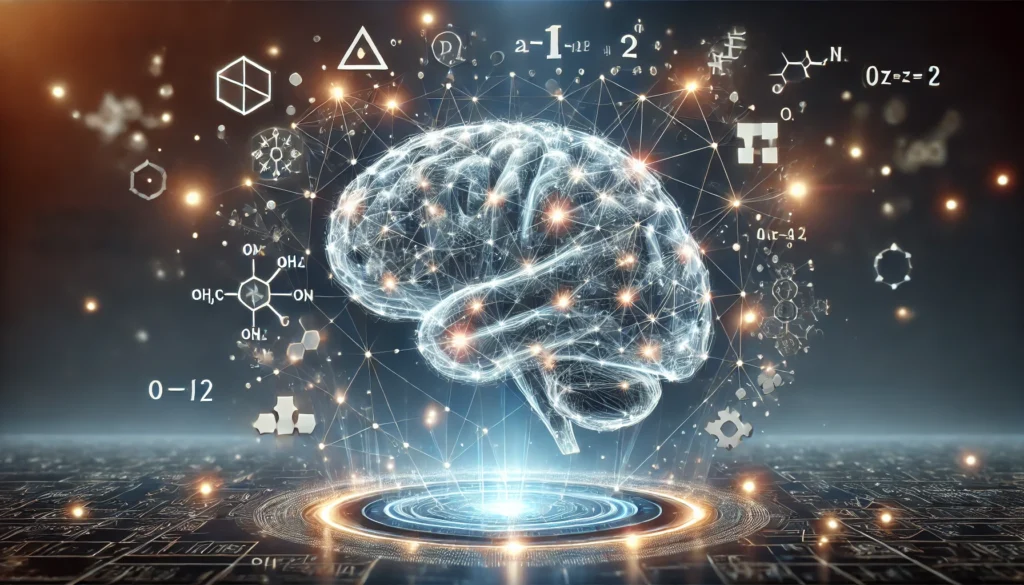In the pursuit of optimizing cognitive performance, working memory often stands at the forefront of scientific inquiry and practical application. This area of cognitive science has gained significant attention due to its profound impact on various aspects of mental functioning. Working memory, a critical component of our cognitive architecture, is essential for tasks ranging from simple arithmetic calculations to complex problem-solving and decision-making. Understanding how to enhance this vital cognitive skill through targeted activities and games can pave the way for improved mental acuity and overall brain health. This comprehensive approach ensures that individuals, regardless of age, can benefit from enhanced cognitive performance, leading to better academic, professional, and personal outcomes.
You may also like: Effective Techniques for Memory Practice Improvement
Understanding Working Memory
The Cognitive Foundation
Working memory is akin to a mental workspace where information is temporarily held and manipulated. This cognitive process allows individuals to retain relevant information while engaging in complex tasks, making it indispensable for learning and everyday functioning. Unlike short-term memory, which focuses on the simple retention of information, working memory involves the processing and manipulation of information. It acts as a bridge between short-term memory and long-term memory, facilitating the transfer and integration of information across different cognitive domains.
The Distinction from Short-Term Memory
While often confused with short-term memory, working memory is distinct in its functionality. Short-term memory is primarily concerned with the immediate recall of information, such as remembering a phone number long enough to dial it. In contrast, working memory involves active manipulation and management of information, such as solving a math problem or planning a complex task. This distinction highlights the dynamic nature of working memory, as it requires continuous updating and reorganization of information.
The Role of Working Memory in Daily Life
From remembering a list of groceries to solving intricate puzzles, working memory plays a pivotal role in our daily activities. It enables us to follow conversations, engage in reasoning, and even plan our day effectively. Strengthening this cognitive capacity is not just beneficial but necessary for those seeking to enhance their mental faculties. Everyday tasks, such as cooking a new recipe or navigating a busy schedule, rely heavily on working memory to juggle multiple pieces of information simultaneously.
Working Memory and Academic Performance
In the academic realm, working memory is crucial for success across various subjects. It supports reading comprehension by allowing students to hold and process information from texts while making inferences. In mathematics, it aids in problem-solving by enabling students to retain and manipulate numerical data. By improving working memory, students can enhance their ability to learn and perform in educational settings, leading to better grades and deeper understanding.
The Impact on Professional Skills
In the workplace, strong working memory skills are invaluable. They facilitate multitasking, decision-making, and the ability to adapt to new information quickly. Professionals with enhanced working memory can manage projects more efficiently, communicate effectively, and innovate by synthesizing complex data. Investing in working memory improvement can thus lead to greater career advancement and job satisfaction.

Games to Improve Working Memory
Popular Games and Activities
- Dual N-Back: As one of the most researched cognitive exercises, Dual N-Back challenges players to remember a sequence of auditory and visual stimuli. This game not only tests but also strengthens working memory by requiring players to recall information from several steps back. Regular practice with Dual N-Back has been shown to increase fluid intelligence, making it a popular choice among cognitive training enthusiasts.
- Memory Matching Games: Classic memory games, often involving cards or tiles, are excellent for children and adults alike. These games require players to remember the location of various images or symbols, thereby enhancing their memory retention and recall abilities. The simplicity of these games makes them accessible to people of all ages, providing an engaging way to improve memory without the need for advanced technology.
- Simon Says with a Twist: A modern take on the traditional game, this version incorporates additional elements, such as colors or numbers, to make the task more challenging. Players must remember and repeat sequences, fostering both auditory and visual working memory. This game not only stimulates cognitive function but also promotes social interaction and teamwork, making it ideal for group settings.
Digital and Online Games
In today’s digital age, numerous online platforms and apps offer games specifically designed to boost working memory. These digital tools combine engaging graphics and interactive gameplay with scientifically-backed cognitive exercises. Players can track their progress, set goals, and compete with others, making working memory training both fun and motivating.
Customized Cognitive Training Programs
For those seeking a more personalized approach, customized cognitive training programs can be tailored to individual needs. These programs assess a user’s current cognitive abilities and design targeted exercises to enhance specific aspects of working memory. By focusing on areas that require improvement, users can experience more effective and measurable gains in cognitive performance.
Speech Therapy Memory Activities for Adults
For adults seeking to enhance their cognitive skills, particularly in a therapeutic context, speech therapy memory activities offer promising benefits. These activities often involve recalling sequences of words or numbers, repeating phrases, and engaging in structured dialogue, all designed to bolster working memory and cognitive resilience. Speech therapists use these activities to support individuals with cognitive impairments, providing a structured and supportive environment for memory enhancement.
Group Therapy and Social Interaction
Incorporating social interaction into memory training can enhance its effectiveness. Group therapy sessions that focus on memory activities encourage communication and collaboration among participants. These interactions stimulate cognitive processes and provide emotional support, making memory training a more enjoyable and rewarding experience.
Cognitive Behavioral Techniques
Cognitive behavioral techniques can be integrated into memory training to address underlying cognitive patterns that may hinder memory performance. By identifying and modifying negative thought processes, individuals can improve their cognitive flexibility and working memory. These techniques complement traditional memory activities, providing a holistic approach to cognitive enhancement.
Working Memory Games for Kids
Fun and Educational Activities
- Story Building Games: Encouraging children to create and recall stories helps in enhancing their verbal working memory. This activity not only stimulates creativity but also improves linguistic skills and memory retention. Storytelling games can be adapted to different age groups and interests, making them a versatile tool for cognitive development.
- Interactive Puzzles: Jigsaw puzzles and similar activities encourage children to visualize and remember patterns and shapes, thereby enhancing spatial working memory. These puzzles can vary in complexity, allowing children to progress at their own pace and build confidence in their problem-solving abilities.
- Educational Apps: In the digital age, numerous apps are specifically designed to enhance working memory in children. These apps often combine fun with learning, making them an ideal tool for cognitive development. With features like adaptive difficulty and rewards systems, educational apps keep children engaged and motivated to improve their memory skills.
Incorporating Working Memory into Classroom Activities
Teachers can integrate working memory exercises into classroom activities to support students’ cognitive development. Simple practices, like using memory games as part of lesson plans or encouraging students to summarize what they’ve learned, can reinforce working memory skills. By making these exercises a regular part of the curriculum, educators can help students build a strong cognitive foundation.
Parental Involvement in Cognitive Development
Parents play a crucial role in supporting their children’s cognitive development. By engaging in memory games and activities at home, parents can reinforce the skills learned in school and provide additional opportunities for practice. Encouraging a positive attitude towards learning and challenging children with new tasks can further enhance their working memory.
Outdoor and Physical Activities
Incorporating physical activity into memory training can yield significant benefits. Activities like scavenger hunts or obstacle courses require children to remember instructions and sequences, linking physical movement with cognitive processing. These activities promote both physical health and cognitive development, making them an effective way to engage children in memory training.
The Science Behind Working Memory Enhancement
Neuroplasticity and Cognitive Training
The human brain is remarkably adaptable, thanks to the phenomenon of neuroplasticity. Cognitive training, through targeted working memory tasks, can induce changes in brain structure and function. These changes are associated with improved cognitive performance, suggesting that regular engagement in working memory tasks can lead to long-term benefits. By harnessing neuroplasticity, individuals can enhance their cognitive abilities and maintain brain health throughout their lives.
Understanding the Mechanisms of Change
Research into the mechanisms underlying working memory enhancement has revealed insights into how the brain adapts to cognitive training. Synaptic plasticity, the strengthening or weakening of connections between neurons, plays a key role in memory improvement. Understanding these processes can inform the development of more effective cognitive training programs and interventions.
Current Trends and Future Implications
The field of cognitive enhancement is rapidly evolving, with ongoing research exploring new methods and tools to boost working memory. Advances in neurotechnology, such as brain stimulation and neurofeedback, hold promise for future interventions. As our understanding of the brain continues to grow, so too will the strategies available for enhancing working memory. The integration of artificial intelligence and machine learning into cognitive training could lead to personalized and adaptive training programs that maximize individual potential.
The Role of Genetics and Environment
While genetics play a role in determining cognitive abilities, environmental factors can significantly influence working memory. Factors such as education, lifestyle, and social interactions contribute to cognitive development and performance. By understanding the interplay between genetics and environment, researchers can develop targeted interventions that optimize working memory enhancement.
Ethical Considerations in Cognitive Enhancement
As cognitive enhancement technologies advance, ethical considerations must be addressed. Issues such as accessibility, fairness, and the potential for misuse of cognitive enhancement tools require careful consideration. Ensuring that these technologies are used responsibly and equitably will be crucial to their successful integration into society.

Practical Advice for Enhancing Working Memory
Consistency is Key
To reap the benefits of working memory tasks, consistency is essential. Engaging in cognitive exercises regularly can lead to significant improvements over time. It’s not about the intensity of the activity but the regularity with which it is performed. Establishing a routine that incorporates working memory exercises can create lasting habits and support long-term cognitive health.
Setting Realistic Goals
When embarking on a working memory enhancement journey, setting realistic and achievable goals is crucial. By defining clear objectives and tracking progress, individuals can stay motivated and focused on their cognitive development. Celebrating small successes along the way reinforces positive behavior and encourages continued effort.
Balance and Variety
While working memory tasks are beneficial, they should be part of a broader cognitive training program that includes activities for other cognitive skills, such as attention, reasoning, and problem-solving. Incorporating a variety of exercises ensures a well-rounded cognitive enhancement regimen. This approach not only prevents cognitive fatigue but also promotes overall brain health by engaging multiple cognitive domains.
Incorporating Mindfulness and Relaxation
Mindfulness practices, such as meditation and deep breathing, can complement working memory training by reducing stress and enhancing focus. These techniques promote relaxation and mental clarity, allowing individuals to approach cognitive tasks with a calm and focused mind. Integrating mindfulness into daily routines can enhance the effectiveness of working memory exercises.
Mindful Engagement
Cognitive tasks are most effective when performed mindfully. Paying full attention to the task at hand, rather than multitasking, ensures that the brain is fully engaged and can derive maximum benefit from the activity. Mindful engagement fosters deeper cognitive processing and reinforces the neural connections that support working memory.
Leveraging Social Support
Engaging in working memory exercises with others can provide social support and motivation. Whether through group activities, online communities, or friendly competitions, social interactions can enhance the enjoyment and effectiveness of cognitive training. Sharing experiences and challenges with others can lead to valuable insights and encouragement.

Conclusion
Enhancing cognitive skills through working memory tasks is both a practical and scientifically supported approach to cognitive optimization. Whether through games, activities, or therapeutic interventions, the potential to improve working memory is within reach for individuals of all ages. By understanding the mechanisms of working memory and integrating targeted tasks into daily routines, we can unlock greater cognitive potential and enjoy a sharper, more focused mind. This journey of cognitive enhancement is supported by a growing body of research and a community dedicated to exploring the limits of human potential.
In embracing these strategies, health and wellness coaches, science journalists, and biohackers alike can offer accurate, engaging, and practical advice on cognitive enhancement. As the journey of exploring the mind continues, working memory tasks remain a cornerstone of cognitive health and wellness. By fostering a culture of cognitive growth and lifelong learning, we can pave the way for a future where individuals are empowered to reach their full cognitive potential.
Further Reading:
Strategies to Build Working Memory
An Introduction to Working Memory
Important Note: The information contained in this article is for general informational purposes only, and should not be construed as health or medical advice, nor is it intended to diagnose, prevent, treat, or cure any disease or health condition. Before embarking on any diet, fitness regimen, or program of nutritional supplementation, it is advisable to consult your healthcare professional in order to determine its safety and probable efficacy in terms of your individual state of health.
Regarding Nutritional Supplements Or Other Non-Prescription Health Products: If any nutritional supplements or other non-prescription health products are mentioned in the foregoing article, any claims or statements made about them have not been evaluated by the U.S. Food and Drug Administration, and such nutritional supplements or other health products are not intended to diagnose, treat, cure, or prevent any disease.


